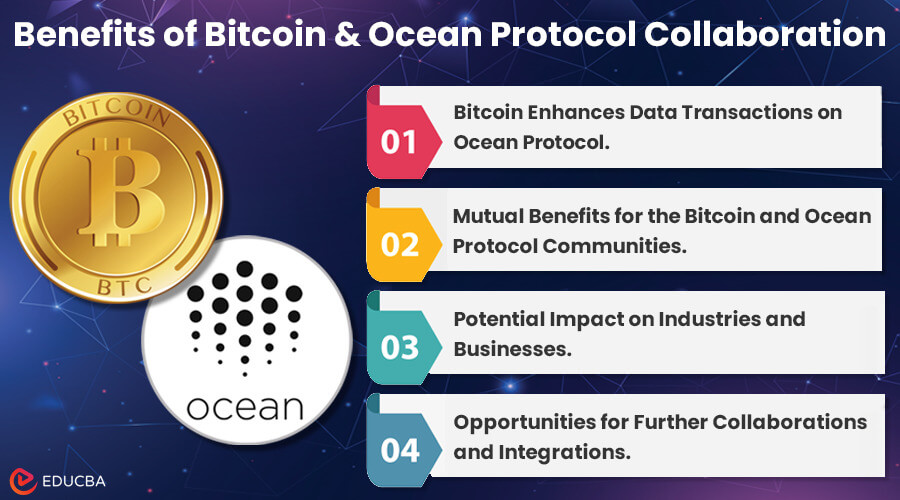
What Does Data as Currency Mean?
Data as currency is the concept where data serves as a tradable digital asset in the global economy, and users can use it like traditional currencies to make purchases.
Traditionally, we have viewed data as a byproduct of various activities. However, digital transformation has changed data into an important asset, i.e., it acts as a medium of currency exchange. This ability to use data as a currency opens new avenues for economic transactions and value creation in cryptocurrency and AI.
The two important revolutions in the emergence of data as the new currency are Bitcoin and Ocean protocol.
Most people are investing in Bitcoin and using ocean protocol for digital transactions. If you cannot make wise decisions regarding investment in the market? You need to first connect with an education firm and learn about investing.
Table of Contents
- What is it?
- Challenges Of Data as Currency
- Bitcoin Overview
- What is the Ocean Protocol?
- Benefits of Bitcoin and Ocean Protocol Collaboration
Challenges of Data as Currency
The following are some challenges of using data as currency in crypto and AI.
- Data as currency raises privacy concerns, as it involves exchanging and utilizing sensitive information.
- It raises security concerns as it lacks security measures to protect data against unauthorized access, breaches, and cyberattacks.
- There is also a lack of standardized frameworks for data as a currency in the emerging data economy. This can raise legal or regulatory risks.
As the data economy evolves, regulatory frameworks must address the challenges posed by decentralized technologies. Therefore, collaboration between industry stakeholders and regulatory bodies is crucial to establish clear guidelines for a better future.
In the following sections, let’s understand the two important revolutions of data as currency, i.e., Bitcoin and Ocean Protocol.
Bitcoin Overview
Bitcoin, introduced by the pseudonym Satoshi Nakamoto, marked the beginning of a new era in finance. Bitcoin is the first and most well-known cryptocurrency, primarily serving as a decentralized digital currency for peer-to-peer transactions.
The following are the special features of Bitcoin.
- Bitcoin eliminates the need for intermediaries in financial transactions, providing a transparent alternative to traditional banking systems.
- It operates on its blockchain technology and thus plays an influencing role in reshaping the economy and financial transactions.
- Since Bitcoin is a secure and transparent currency, it enhances the reliability of data transactions, providing a strong foundation for data currency projects.
What is the Ocean Protocol?
Ocean Protocol, on the other hand, facilitates the sharing, monetization, and trading of data assets in a secure manner. Thus, it is a safe marketplace for data providers and consumers to engage in transparent transactions. This technology is applicable and used in several cases, from healthcare to finance.
Some common features are as follows.
- Ocean Protocol uses blockchain technology to create a trustworthy and efficient system for exchanging data.
- With smart contracts, people who share data (data provider) can turn their datasets into tokens and decide terms and conditions for access, i.e., who can use them and under what conditions.
- The decentralized approach of Ocean Protocol ensures fair compensation for data creators and encourages everyone to share and use data together.
Benefits of Bitcoin and Ocean Protocol Collaboration
Till now, you must have understood Bitcoin and Ocean Protocol. Let us understand the future outlook of data as a currency if there is a collaboration between Bitcoin and Ocean Protocol.
1. Motivation behind this collaboration
The collaboration between them can be motivated by Bitcoin’s quality of secure transactions and Ocean Protocol’s expertise in decentralized data exchange. Thus, combining both these qualities can unlock new possibilities in the data economy.
2. How does Bitcoin enhance data transactions on Ocean Protocol?
Bitcoin ensures security and reliability. It also provides stability in accessing and conducting global transactions when used with Ocean Protocol. This collaboration may lower the risk associated with physical currency transactions.
3. Mutual benefits for the Bitcoin and Ocean Protocol communities
Bitcoin may expand its services and allow users to participate in various Ocean Protocol ecosystems. Simultaneously, Ocean Protocol may adopt the stability of Bitcoin to build trust and confidence in its data exchange platform. This symbiotic relationship may contribute to the growth and sustainability of both user communities.
4. Potential impact on industries and businesses
The collaboration between Bitcoin and Ocean Protocol may radically impact various industries, from finance to healthcare. Businesses can explore new revenue streams and innovative solutions fueled by the secure and decentralized exchange of data currency.
5. Opportunities for further collaborations and integrations
The success of the Bitcoin and Ocean Protocol collaboration will open the door to further partnerships and integrations within the broader blockchain and data ecosystems. Exploring synergies with other technologies and platforms will likely lead to developing a more interconnected and robust data economy.
6. Technological hurdles and scalability
There will be technological hurdles for the seamless integration of Bitcoin and Ocean Protocol, and addressing these is essential to ensure scalability. Continuous advancements in blockchain technology, consensus mechanisms, and interoperability may provide a strong infrastructure for the growing demands of the data currency revolution.
Final Thoughts on Data as Currency
In conclusion, the collaboration between Bitcoin and Ocean Protocol will stand as a groundbreaking venture in data transactions and also position data as a future currency. Moreover, emerging trends such as decentralized finance (DeFi), non-fungible tokens (NFTs), and tokenized assets will also play a significant role in data currency as the data economy evolves.
Recommended Articles
We hope this “Data as Currency” article was informative and helpful. You can also refer to the articles below for more information.
